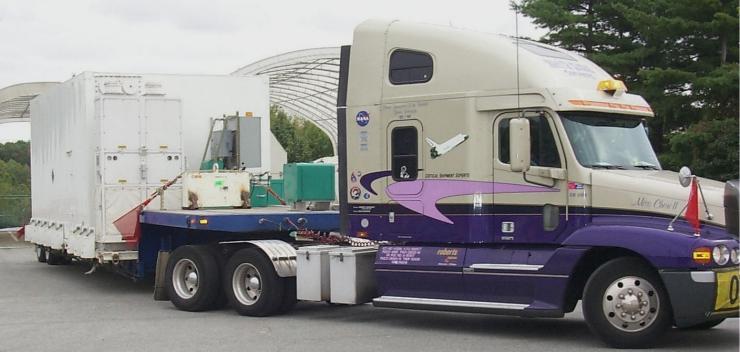
Home delivery, which is often free with a minimal order, is sure convenient and beats having to jump in the car or change out of our pajamas to run those pesky errands. It is also a brilliant business model; anyone who has ordered on Amazon would agree as he or she gritted her teeth when they found they were a buck-fifty short of that US$35 free online shipping threshold. Of course, all those orders create their own impacts, from leaving a massive environmental footprint to the experience of workers toiling in those warehouses. Union of Concerned Scientists (UCS), for example, estimates that our addiction to home deliveries burns about 70 gallons of fuel annually per person.
To some of us here at Triple Pundit, that figure seems low—clearly if you are an Amazon Prime fiend, you are surely burning even more fuel. But considering that trucks are tasked with the bulk of shipping is in the United States, UCS insists more should be done to make trucks more energy efficient. According to the organization, the equivalent of 400,000 gallons of fuel a year is burned just to ship mobile phones across the U.S. If trucks could improve their mileage from what is now an average of six miles per gallon, the results would be huge fuel savings for the shipping of that newest smartphone.
UCS, therefore, is calling for even higher federal fuel efficiency rules for trucks. The U.S. adopted new standards in 2011, but UCS is calling for even higher standards this year as the 2011 rules will be implemented through 2018. These two new sets of standards could cut heavy trucks’ total fuel consumption by up to 40 percent.
Obviously the environmental benefits speak for themselves, but the financial rewards, insists UCS, are a smart business decision for individual truck drivers and managers of huge national fleets. Technologies and innovations already available, including new axle designs, improved aerodynamics, and updated engines and transmissions could save truck owners and drivers up to US$30,000 annually. In 10 years, such improvements would add about US$32,000 to the cost of a truck, but the costs of the upgrades would be recouped in 13 months.
Trucks, tractor-trailers and delivery vans have had little improvement in fuel economy since the 1970s, which is shocking considering both the advances in engineering as well as the surge in shipping to homes and businesses that have made it a daily routine for millions of Americans. Large road vehicles currently consume 25 percent of all transport fuel, but account for only seven percent of the vehicles on America’s highways and roads.
The numbers are overwhelming: shoes and diapers require 2 million gallons of fuel annually for shipment; beer almost 63 million gallons; and the movement of fuel itself burns 260 million gallons a year. The recent increase in gasoline and diesel prices show that the cost of fossil fuels will always be volatile; higher fuel standards, coupled with incentives to help independent truckers make those upgrades, will not only clean the air but keep our economy more secure in the long term.
Based in Fresno, California, Leon Kaye is a business writer and strategic communications specialist. He has also been featured in The Guardian, Clean Technica, Sustainable Brands, Earth911, Inhabitat, Architect Magazine and Wired.com. When he has time, he shares his thoughts on his own site, GreenGoPost.com. Follow him on Twitter and Instagram.
Image credit: Gbleem

Leon Kaye has written for 3p since 2010 and become executive editor in 2018. His previous work includes writing for the Guardian as well as other online and print publications. In addition, he's worked in sales executive roles within technology and financial research companies, as well as for a public relations firm, for which he consulted with one of the globe’s leading sustainability initiatives. Currently living in Central California, he’s traveled to 70-plus countries and has lived and worked in South Korea, the United Arab Emirates and Uruguay.
Leon’s an alum of Fresno State, the University of Maryland, Baltimore County and the University of Southern California's Marshall Business School. He enjoys traveling abroad as well as exploring California’s Central Coast and the Sierra Nevadas.














